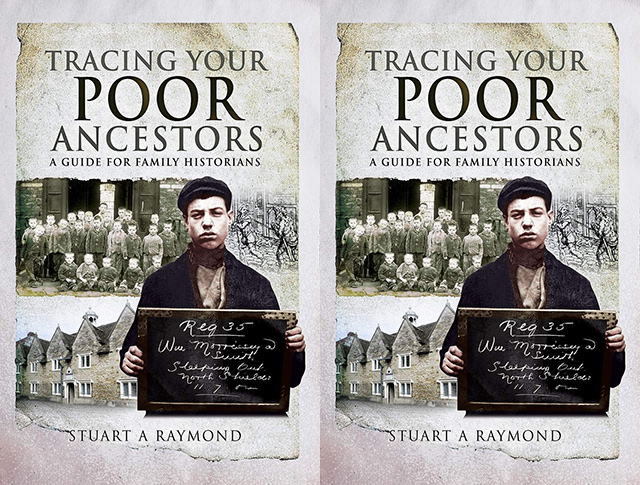Tracing Your Poor Ancestors: A Guide for Family Historians
Book review

Tracing Your Poor Ancestors: A Guide for Family Historians, Stuart A. Raymond, Pen and Sword, 2020, 196p, £14-99. ISBN 9781526742933
This is a very helpful aide memoire for anyone wishing to find out what their impoverished ancestors may have experienced. Inevitably it cannot provide precise answers to the most specific of enquiries but it does explain very carefully what resources are available, and offers good bibliographical references.
In every section documentary examples, from Stuart Raymond’s experience, reveal what might be discovered by a determined researcher.
This is an ambitious book and it succeeds in explaining the nature of early poverty before the Elizabethan Poor Laws of 1597 and 1601; the manner in which the poor were managed, indoors and outdoors, until the transformative Poor Law Amendment Act of 1834; and the universal treatment of the poor in more recent times. For example, in the latter element we learn how workhouses evolved into hospitals for the poorest of people. The latter has implications for our own times because, for example, both my grandmothers were reluctant to be taken to their neighbourhood hospitals because they remembered that they occupied former workhouse premises. The memory of this form of care, latterly ameliorated, still was, and for some still is, part of a community-held fear of what the workhouse had represented.
Particularly helpful, from my perspective, was the section which explained and differentiated between vagrants and paupers. Equally the last section is an extraordinarily useful introduction to a host of miscellaneous possible additional avenues to explore, such as adoption and friendly society membership.
This is strongly recommended.

